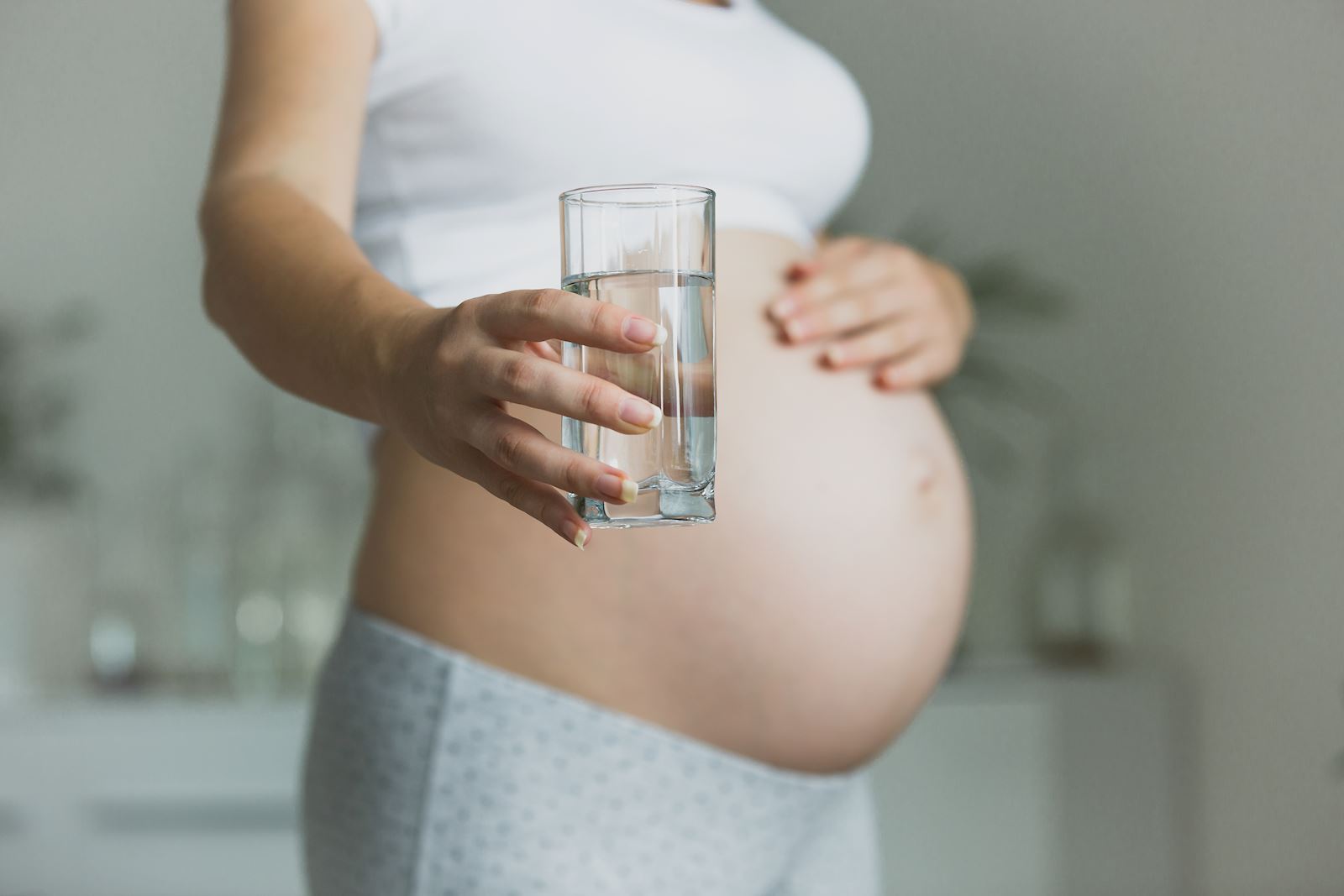Staying hydrated is important for your general health — especially during pregnancy. Good circulation, digestion, and kidney function are all dependent on you maintaining your hydration levels, advises Dr. Therese Tran, OB/GYN at The Iowa Clinic. Staying hydrated allows nutrients through the placenta to help baby grow and is vital to maintaining amniotic fluids. Dehydration can lead to numerous risks, like premature contractions, premature delivery, or decreased placental blood flow —which means lower levels of oxygen and nutrients to baby and can sometimes result in fetal intolerance to stressors like contractions.
Dangerous Dehydration
Dehydration can be problematic in general, but especially when you are pregnant. You need water, but your baby does too. Dehydration leads to slower digestion and constipation — which is already common in pregnant women. You may also feel dizzy, lightheaded, fatigued, palpitations, or even faint, which can be related to low pressure.
Amniotic fluid surrounds the fetus during pregnancy and allows for healthy development of the baby. Your body depends on water to produce amniotic fluid, so it is critical to maintain intake. Excess or low amniotic fluid levels can be related to other things besides hydration, like medical conditions or placental problems, so consulting with your OB/GYN can help determine where the concerns lie.
When you are dehydrated, the uterus becomes irritable, which can lead to cramping and irregular contractions. In some cases, it can progress to full preterm labor if the dehydration is not corrected.
Keep It Up, Even During Labor
Labor is stressful on the mother and the baby — so it is important to stay hydrated. You need optimal hydration for good transportation of nutrients and oxygen to you and your baby. If you are given an epidural, a bag of IV fluids will typically be given to help the slight drop in blood pressure commonly experienced.
Staying hydrated is also important during recovery because of blood loss during delivery and postpartum period, which can result in anemia. If you are anemic and dehydrated, you are more likely to get dizzy with position changes, or even faint. Hydration helps with healing by circulating oxygen and nutrients to the cells and removing inflammatory toxins from the body.
Post-delivery breastfeeding is a delicate balance of hydration, maternal nutrition, and supply and demand. In general, breastfeeding, or pumping mothers should get the same amount of hydration as they did during pregnancy – about 8 to 12 glasses of water per day. Dehydration can decrease your milk production, so your milk volume may vary day to day based on your nutrition and hydration.
Drink Your Water, Baby!
You should aim for 8 to 12 glasses of water each day, about 64 to 96 ounces. You should also limit sugary beverages that carry empty calories, cause excessive weight gain, and put you at risk for gestational diabetes. You should also limit your caffeine intake to one drink a day to prevent any risk to baby.
For many, it can be a challenge to remember to drink water throughout the day. Carrying a water bottle with you, setting a reminder, and monitoring your intake are great ways to encourage hydrating. If you find that your mouth is dry or feel thirsty, this is a sign that you need water. Drinking flavored or carbonated water can be a good way to switch up your hydrating routine if you struggle to drink plain water.
Know The Signs of Dehydration
When your body is using or losing water faster than it’s taking it in, it can cause a variety of symptoms, including:
- Dry mouth, lips, or eyes
- Headache
- Feeling thirsty
- Dizziness
- Low blood pressure
- Infrequent urination/dark yellow or amber colored urine
When Should I Contact My Doctor?
By knowing the signs and symptoms of dehydration, you can prevent serious complications and situations. However, there are some circumstances when you may need to contact your doctor:
- Nausea/vomiting preventing you from taking fluids for over 12 hours
- Begin having contractions more than several times per hour that doesn’t improve with rest and hydration
- Feeling dizzy or faint
No matter what stage you are in your pregnancy, The Iowa Clinic OB/Gyn department is here for all of it. Visit our website or call 515.875.9290 to learn more.


